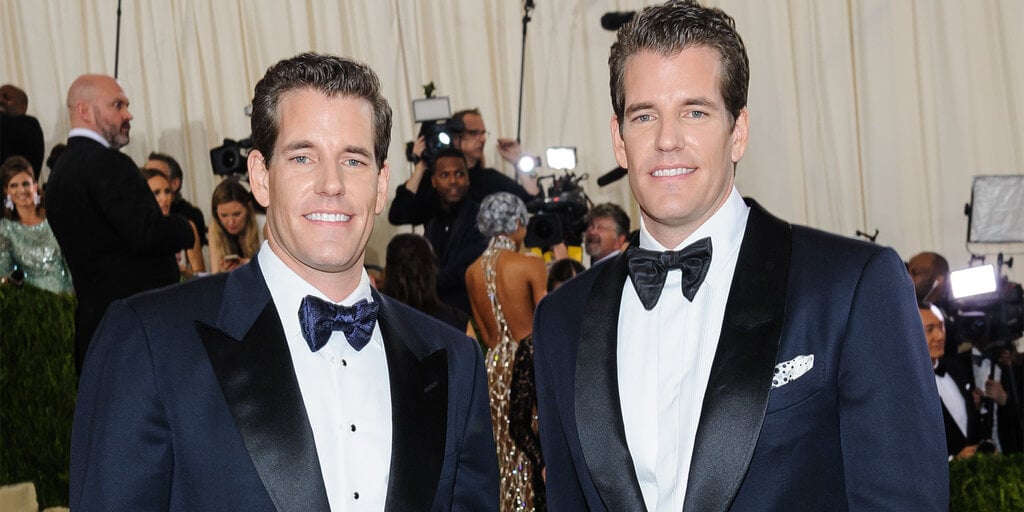House Financial Services Committee Markup of Stablecoin Legislation
Conflict of Interest Concerns
A House Financial Services Committee markup of stablecoin legislation appeared to go off course on Wednesday, with Democrats spending hours hammering home the same message: Democrats would in principle support the STABLE Act, but see President Donald Trump’s personal involvement in the stablecoin sector as an unacceptable conflict of interest.
Democratic Concerns
Multiple Democrats, including a co-sponsor of the STABLE Act itself, offered amendments to the bill on Wednesday that would have prevented the president, his cabinet, the first lady, and special government employees like Elon Musk from offering stablecoin products while in office.
Amendments Rejected
One by one, over the course of hours, those amendments were shot down by voice vote by the Committee’s slim Republican majority.
Republican Leadership
Republican leadership countered the proposals by arguing that the STABLE Act currently requires all issuers to comply with the same rules, and that boxing out certain issuers – even the sitting president himself – would stifle market competition. The Act would create a set of rules, involving compliance with anti-money laundering laws and reserve audits, that all stablecoin issuers would have to comply with to operate in American markets.
Committee Chair’s Statement
"We’re not picking winners and losers here," Committee Chair French Hill (R-AR) said. "If you don’t want to use a payment stablecoin, don’t use one."
Trump Family’s Stablecoin
Numerous Democrats took issue with the position that the Trump family’s recently announced stablecoin, the World Liberty Financial USD1 token, should be treated like any other.
Conflict of Interest
"He is unlike any other issuer because he’s the president of the United States," Rep. Stephen Lynch (D-MA) retorted. "And he’s going to take U.S. taxpayer money to assist his family business when it gets in trouble."
Stablecoins Explained
Stablecoins are digital assets pegged to the U.S. dollar that allow cryptocurrency traders to enter and exit positions without the need to access dollars directly. Some stablecoin issuers, like the Trump-backed World Liberty Financial, purport to strengthen U.S. dollar hegemony by encouraging the use of dollar-backed assets in both foreign and digital asset markets. But absent a regulatory framework in the United States, the legality of such products remains in question.
Trump Family’s Crypto Investments
The Trump family’s lucrative crypto investments have caused some controversy ever since the president returned to the White House, where he is currently overseeing the creation of the nation’s first ever digital assets regulatory framework. But the Trump family’s announcement last week of a stablecoin product – right at the moment that stablecoin legislation is moving quickly through both chambers of Congress – appears to have struck a particularly resonant chord with Democrats.
Timing
The timing appears to have been inadvertent. A source with direct knowledge of the matter told Decrypt that World Liberty did not intend to roll out its stablecoin so soon. The revelation of blockchain data concerning the product, though, appears to have forced the team’s hand.
Conclusion
The controversy surrounding President Trump’s stablecoin and meme coin projects has left many in the crypto community scratching their heads. While some see the potential benefits of these digital assets, others are concerned about the potential for abuse and the need for stricter regulations. As the debate continues, one thing is clear: the world of crypto is here to stay.
FAQs
Q: What is a stablecoin?
A: A stablecoin is a digital asset pegged to the value of a traditional currency, such as the U.S. dollar.
Q: Why are Democrats concerned about President Trump’s involvement in the stablecoin sector?
A: Democrats are concerned about the potential conflict of interest and the potential for abuse of power.
Q: What is the STABLE Act?
A: The STABLE Act is a proposed bill that would regulate the use of stablecoins and other digital assets.
Q: How do stablecoins work?
A: Stablecoins work by being pegged to the value of a traditional currency, such as the U.S. dollar. This allows users to trade digital assets without having to access traditional currencies.
Q: What is the potential for abuse of power in the stablecoin sector?
A: The potential for abuse of power in the stablecoin sector is a major concern for many. The use of stablecoins for personal gain or to curry favor with foreign actors is a real risk.
Q: How do I get started with stablecoins?
A: To get started with stablecoins, you can begin by researching the different types of stablecoins available and learning about their uses and benefits. You can also consider consulting with a financial advisor to determine if stablecoins are a good fit for your investment portfolio.










